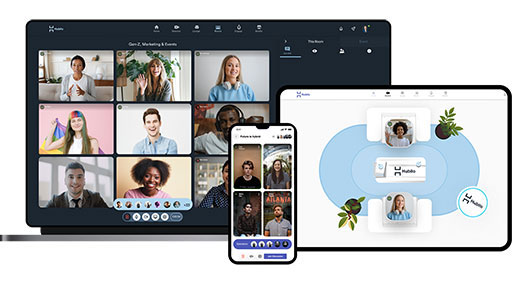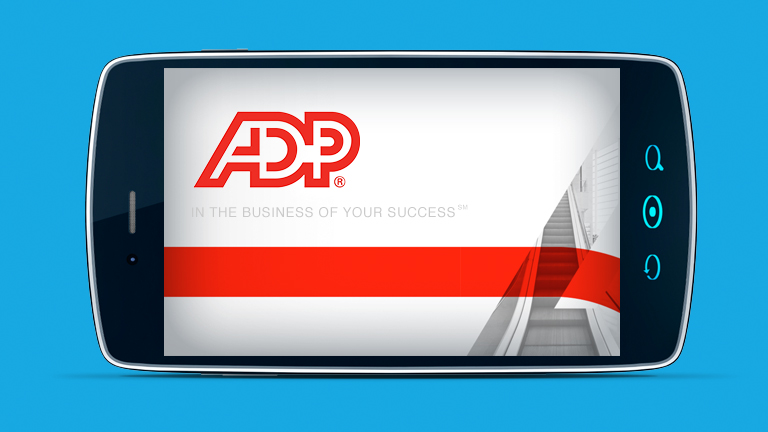Hubilo
“We’re committed to anticipating customer needs, speaking their language, and winning their trust. And Salesforce helps us have these meaningful conversations.”

Hubilo makes customer satisfaction the main event with Salesforce
When the pandemic brought physical events to a standstill in early 2020, it seemed like the end of the road for event management tech startup, Hubilo. By February, the company’s revenues had plummeted to zero. And most of its clients had cancelled or indefinitely suspended their contracts.
But rather than throw in the towel, Hubilo saw the crisis as an opportunity to reinvent itself for a digital world. Within 20 days, the company pivoted from physical to virtual events, re-emerging with a platform designed for deep engagement and event excellence.
The platform went on to be massive hit, prompting Hubilo to grow from 30 employees to 330, while expanding its footprint from India to the US and UK. The company also raised about $28 million in funding in less than a year, and achieved its two-year revenue target in just six months.
“Today, we’re among the world’s top three virtual event management companies with 750+ customers, a track record of 5,000+ successful events, and 50% month-on-month growth,” says Deepak Lamba, Head of Global Sales and Partnerships at Hubilo.
Hubilo brings to the table immense experience in event management. Through its platform and dedicated customer success team, the company takes the stress out of event planning, going above and beyond to offer customers white glove service.
“We aren’t just selling a platform but an experience,” says Lamba. “We’re committed to anticipating customer needs, speaking their language, and winning their trust. And it’s Salesforce that helps us have these meaningful conversations.”
From multiple siloed systems to a single unified platform
While Hubilo was growing at an exponential rate, its sales and CRM tools weren’t scaling as fast. Sales data, quotes, and invoices were managed on different systems and spreadsheets. This siloed approach fractured the sales cycle, and delayed processes like contract signing.
“We needed a new CRM that could help us move fast,” says Veerbhavan Hingorani, Associate Director, Sales Operations. “Salesforce was the obvious choice for its scalability and out-of-the-box capabilities. With it, we could run sales and CRM on autopilot. More importantly, we could connect multiple functions—including sales, customer success, and account management—on one unified platform.”
Hingorani led a team of four in-house Salesforce developers to implement Salesforce Sales Cloud, Service Cloud, Experience Cloud, and Tableau.
“Once you experience how well Salesforce streamlines processes, integrates with various systems, and unifies teams around the customer—you’re hooked,” says Lamba.
Enriching customer conversations with a 360-degree customer view
Hubilo uses Salesforce Sales Cloud to manage its entire sales cycle—from segmenting prospects and monitoring pipelines, to converting leads and managing customer accounts. Sales reps can view all inbound and outbound leads from various channels, while also tracking conversion rates and win-loss percentages.
With Einstein Activity Capture, sales reps can automatically synch their customer communications to Salesforce, thus accelerating productivity.
“Sales reps now spend less time uploading data, and more time selling,” says Hingorani.
The team also uses a CPQ solution to generate sales quotes from within the CRM. The streamlining of this process has reduced the time-to-quote by 9x- from 20 minutes to two minutes.
By integrating Salesforce with other systems like HubSpot and SalesLoft, the team has a complete view of sales activities and customer data. Armed with this single source of customer truth, sales reps can have much more focused customer conversations.
“All our customer profiles, pricing, use cases, past successes, references, and other data are visible on one platform,” says Lamba. “We know exactly what the customer is looking for, and how we can help them. There’s no need for guesstimates anymore.”
Forging strong partner networks that drive seamless customer experiences
Hubilo also gets leads through various channel partners, ranging from event management companies to hotels.
“Post COVID-19, we became a lifeline to partners like event managers,” says Lamba. “Not only could they run successful virtual events on our platform, but also earn commissions by bringing in new leads.”
The company has created a comprehensive partner portal on Salesforce Experience Cloud to onboard and connect with these partners. Over 40 resellers and 17 distributors—including audio-visual producers, marketers, event managers, tech support, and venue partners—are managed on the portal.
“Customers don’t want to talk to multiple vendors when planning an event—they look to us to be their single point of contact,” says Lamba. “Through our partner portal, we can orchestrate and manage our partners so efficiently that the end customer enjoys a seamless experience.”
Meanwhile, the customer success team uses Salesforce Service Cloud to support customers throughout their event planning and execution journey. The team has all the information they need at their fingertips to address customer queries and issues quickly.
Elevating decision-making with a host of insights
Through rich reports and dashboards on Salesforce, Hubilo can track sales and customer success metrics in real time.
“Management has complete visibility into sales forecasts, deal closures, conversion rates, sales revenue per geography, and other actionable insights that help them make smarter and faster decisions,” says Hingorani.
Hubilo is now implementing Salesforce Tableau to deepen data analysis and visualisation. Information from various sources will be pulled into Tableau dashboards to help business leaders spot trends faster, and predict outcomes better.
In the future, Hubilo plans on implementing Salesforce Einstein to gain richer intelligence for sales performance optimisation.
Bigger, bolder, better
Hubilo has big plans in store. For starters, the company wants to build online marketplaces that connect customers to event organisers and other vendors. It also hopes to create online communities where event attendees and stakeholders can meet and share thoughts or ideas.
In the long term, Hubilo envisions building edtech platforms through which schools can conduct online classes, and store proprietary data.
“By 2025, we want to create new categories of business within the virtual events space,” says Lamba. “We also want to keep adding new platform capabilities, and improving hybrid event experiences. As we scale towards that vision, we can think of no better platform to support our growth than Salesforce.”
Keep exploring stories like this one.
Questions? We’ll put you on the right path.
Ask about Salesforce products, pricing, implementation, or anything else — our highly trained reps are standing by, ready to help.










